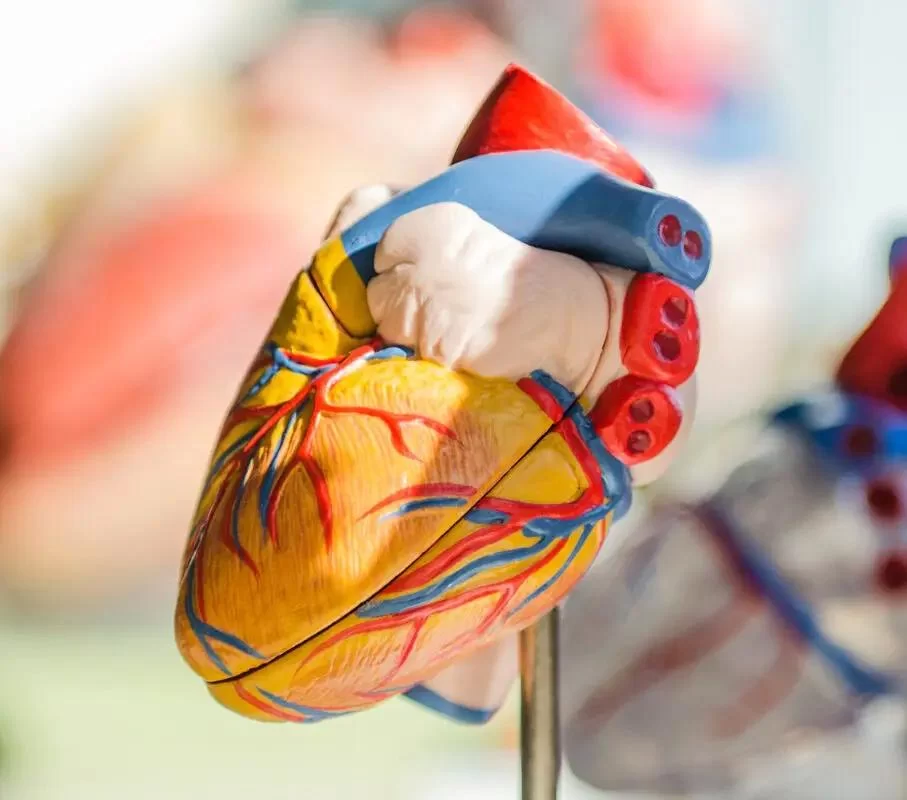- Understanding the Impact of Lifestyle on Heart Disease
- Key Lifestyle Changes for Managing Heart Disease
- The Role of Diet and Exercise in Heart Disease Management
- Real-Life Examples of Successful Lifestyle Management
- Support and Resources for Lifestyle-Based Heart Care
1. Understanding the Impact of Lifestyle on Heart Disease
Managing heart disease with lifestyle changes is a cornerstone of effective cardiovascular care. Heart disease is influenced not only by genetics and medical history but also significantly by daily habits and choices. Recognizing the impact of lifestyle empowers patients to take control of their heart health and reduce the risk of complications.
Many aspects of heart disease, such as high blood pressure, high cholesterol, and obesity, can be managed or improved through modifications in lifestyle. These changes work by reducing strain on the heart, improving blood flow, and decreasing harmful inflammation in the body.

1.1 The Interconnected Role of Lifestyle Factors
Lifestyle factors including diet, physical activity, stress management, and smoking status collectively shape heart health. A balanced approach that targets these areas can slow disease progression and even reverse some damage.
Atlanta Heart Specialists
atlanta heart specialists
4375 Johns Creek Pkwy #350, Suwanee, GA 30024, USA

1.2 Why Lifestyle Management Matters Alongside Medication
While medications are vital in many heart disease cases, lifestyle changes enhance their effectiveness and sometimes reduce the need for higher doses or additional drugs. This combined approach offers a more holistic, sustainable path to wellness.
2. Key Lifestyle Changes for Managing Heart Disease
Specific lifestyle changes play a pivotal role in managing heart disease effectively. Understanding these elements in depth helps build a personalized and practical plan.
2.1 Adopting a Heart-Healthy Diet
A diet rich in fruits, vegetables, whole grains, lean proteins, and healthy fats supports cardiovascular health by lowering cholesterol and blood pressure. Limiting salt, sugar, and saturated fats is essential to reduce arterial plaque buildup.
2.2 Regular Physical Activity
Engaging in regular moderate exercise, such as brisk walking, swimming, or cycling, improves heart muscle strength, aids weight control, and enhances circulation. Exercise also helps manage stress and boosts overall well-being.
2.3 Quitting Smoking and Limiting Alcohol
Smoking damages blood vessels and accelerates heart disease progression, making quitting a top priority. Likewise, moderating alcohol intake prevents blood pressure spikes and reduces the risk of heart rhythm disorders.
2.4 Stress Reduction and Mental Health
Chronic stress elevates heart disease risk by increasing inflammation and blood pressure. Practices like mindfulness, yoga, and counseling can significantly improve heart health by promoting relaxation and emotional balance.
3. The Role of Diet and Exercise in Heart Disease Management
Diet and exercise form the foundation of lifestyle-based management of heart disease. Their effects go beyond simple calorie control to influence metabolic and vascular health deeply.
3.1 Nutritional Strategies for Heart Disease
Eating heart-healthy foods provides antioxidants and essential nutrients that protect blood vessels. For instance, omega-3 fatty acids found in fish reduce inflammation and improve cholesterol profiles. Fiber-rich foods help lower LDL cholesterol and stabilize blood sugar.
3.2 Designing an Exercise Routine That Fits Your Needs
Consistency is key when incorporating physical activity. Starting slowly and gradually increasing intensity helps avoid injury and builds endurance. Including both aerobic and strength training exercises provides comprehensive cardiovascular benefits.
3.3 Overcoming Barriers to Lifestyle Changes
Many patients face challenges like time constraints, motivation issues, or physical limitations. Identifying these barriers and seeking support from healthcare providers or community programs improves adherence and long-term success.
4. Real-Life Examples of Successful Lifestyle Management
Consider the story of David, a 60-year-old diagnosed with congestive heart failure. After his diagnosis, he embraced lifestyle changes, including a Mediterranean diet, daily walking, and stress management through meditation. Within a year, his symptoms improved dramatically, and his doctor reduced his medication dosage.
Such stories illustrate the transformative power of lifestyle changes when managing heart disease. They demonstrate that patients can reclaim their health and quality of life through committed efforts.
4.1 Popular Public Figures Advocating Heart-Healthy Living
Many celebrities and influencers share their journeys of managing heart disease through lifestyle, inspiring others to adopt similar habits and prioritize their heart health.
5. Support and Resources for Lifestyle-Based Heart Care
For those looking to manage heart disease with lifestyle changes, finding reliable support and quality products can make a significant difference. HeartCare Hub offers carefully curated recommendations for heart-healthy foods, fitness programs, stress-relief tools, and expert guidance to help you stay on track.
Engaging with communities and professionals through HeartCare Hub provides motivation and personalized assistance, making lifestyle management more accessible and effective.






















Deborah Heart and Lung Center
deborah heart and lung center
200 Trenton Rd, Browns Mills, NJ 08015, USA